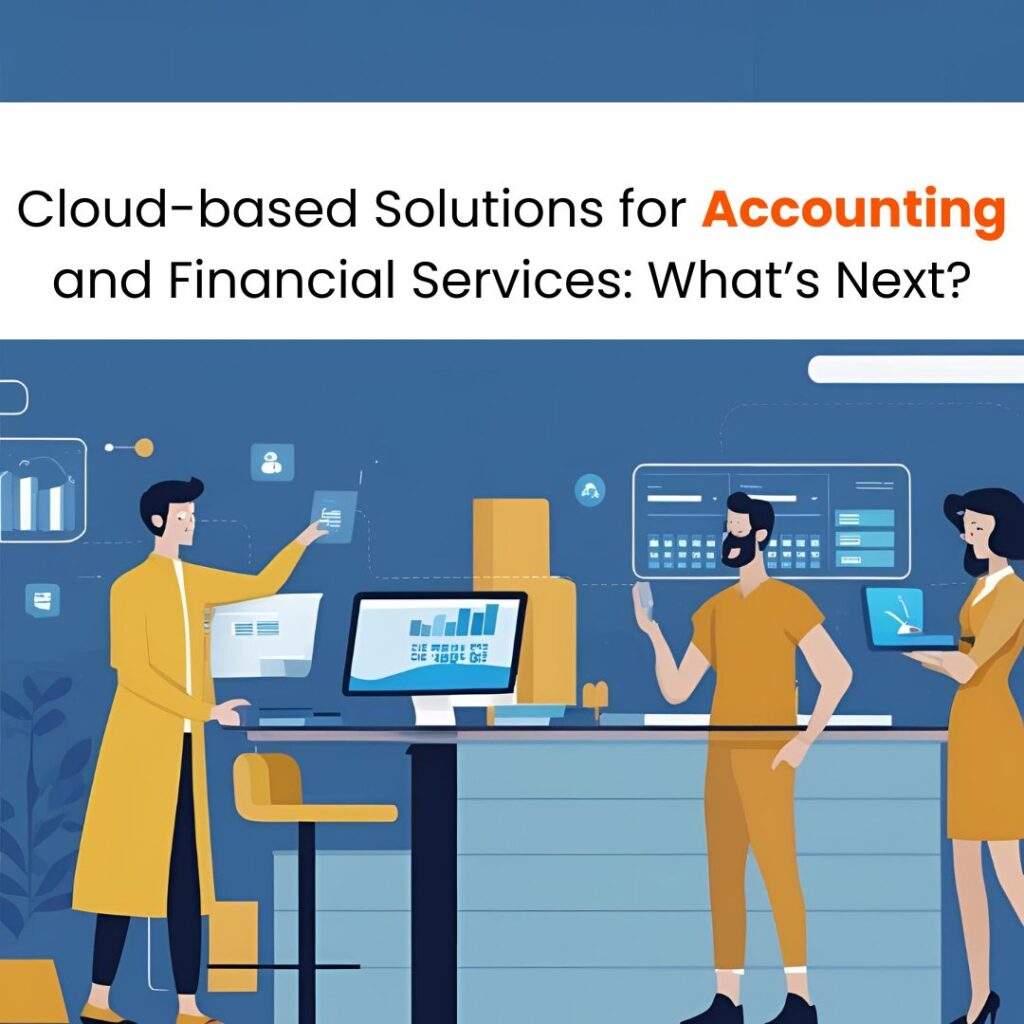The transformation in the digital industry reshapes how business operates. With cloud-based systems taking the lead, the financial sector, including accounting, embraced cloud technology to improve accuracy and efficiency. As technology is changing so quickly, the question now is what is next for the cloud-based solutions for accounting
Cloud accounting implications for financial solutions, the future of cloud-based solutions, and how professionals can adapt to it for the future are all explained in this blog. Let’s read!
The Increase in Cloud-based Accounting Systems
Cloud-based accounting has moved from a niche tool to an industry standard. Cloud accounting allows real-time data access from any location, unlike traditional desktop-based software. Some of the popular tools used in accounting are Xero, QuickBooks Online, and Sage Business Cloud. These tools give automated invoicing, bank reconciliation, real-time dashboards, and multi-user access. Businesses can now automate processes, improve collaboration with other businesses, and reduce overhead costs by cutting the need for local servers or expensive maintenance.
Why cloud-based Solutions for Financial Services are the Solution
Financial services for cloud solutions enable companies and organizations to respond more quickly and dynamically to market changes, client expectations, and regulatory updates.
Flexibility and Scalability
Cloud-based platforms grow with the business. If someone is running a multinational firm or has a solo business, cloud-based solutions adapt to the business needs. It cut off the need for hardware upgrades or long implementation cycles.
Enhanced Security and Compliance
Data security remains a priority for businesses. Modern cloud technology allows encrypted data transmission, multi-factor authentication, and regular backups. Cloud providers also keep up with the industry compliance standards, reducing burdens on internal teams.
Real-time Reporting and Analytics
Cloud computing in finance gives accountants and finance professionals access to real-time dashboards and automated reporting tools. These features support strategic decision-making and up-to-date financial data.
How ACCA Professionals are Adapting to Cloud Technology
The Association of Chartered Certified Accountants has accepted the growing importance of technology in finance. The course includes topics on cloud computing, automation, and data analytics to prepare students for the digital world. Modern accountants are no longer meant for numbers, but they are playing the role of advisors too,l for insights, forecasts, and business guidance. As a result, ACCA professionals must embrace continuous learning and digital tools to stay competitive.
Future of ACCA Professionals
The future ACCA professionals with cloud-based solutions must know
✅Cloud accounting benefits with an automated workflow.
✅Interpret data from cloud financial management tools
✅Assist in implementing cloud-based financial software across the organization
✅Advise clients on digital transformation initiatives.
Emerging Trends in Cloud Computing in Finance
The next wave of innovation in cloud solutions in finance and in the field of ACCA globally includes AI integration, blockchain adoption, and more personalized financial insights.
AI and Machine Learning in the Cloud
Artificial intelligence will enhance cloud financial management tools by automating anomaly detection, suggesting corrective actions, and even forecasting financial outcomes with high accuracy.

today!
Financial Modeling and Predictive Analysis
Predictive analysis has become a huge part of future accounting solutions. Cloud platforms will integrate with BI tools to visualize trends, enabling strategic decisions based on data.
Blockchain-integrated Accounting
Blockchain can bring transparency and fraud prevention to accounting processes. Paired with cloud technology, it offers a decentralized yet secure way of managing transactions.
Cloud Accounting Solutions Benefit at a Glance.
- Anytime, anywhere access to the financial data.
- Multiple users can view and edit data at the same time.
- Lower IT infrastructure and maintenance costs.
- Adapt to the size and needs of the business.
- Built-in compliance with an advanced system.
- Easily integrates with CRM and payroll tax systems.
- Reduced manual work and increased accuracy.
Conclusion
The future of next cloud-based solutions in finance will be shaped by user experience, automation, and cross-platform integrations. Accounting software will become smarter, providing real-time alerts, compliance monitoring, and strategic guidance.
And for financial services, the challenge will be adapting quickly to these changes, keeping data secure, and processes compliant. As digital transformation accelerates, success will belong to those who are agile and proactive in learning.
Frequently Asked Questions
Can small businesses use cloud-based solutions?
Yes, cloud solutions are particularly beneficial for small businesses due to their affordability, ease of use, and reduced need for dedicated IT teams.
How does cloud-based ACCA impact professionals?
ACCA professionals must upskill in cloud-based technology, data analytics, and financial modeling. They will play a critical role in advising companies on digital strategies and tech-driven decision-making.
Is a cloud solution secure to use in accounting?
Yes, most cloud-based financial software offers bank-grade security features, including encryption, regular backups, and access control.
What are the benefits of cloud-based financial services solutions?
There are many benefits: cost savings, improved reporting, automatic compliance updates, and scalability. It is ideal for both startups and large enterprises.
How is Cloud Accounting different from traditional accounting software?
Unlike traditional desktop software, cloud accounting does not require installation or local storage. It is updated automatically, can be accessed remotely, and offers better scalability and integration options.
How may cloud computing help with financial reporting?
Cloud computing in banking allows for real-time data collecting, visualization, and reporting. This enables enterprises to make rapid, educated decisions.





